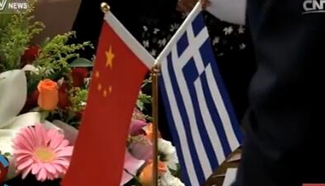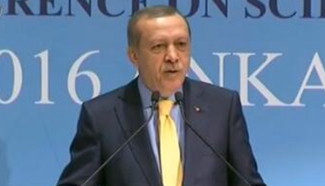By Chris Dalby
MEXICO CITY, Oct. 4 (Xinhua) -- Through a mixture of a favorable market and local development as well as technological progress, Mexico's energy reforms, a couple of years old now, have taken a big step forward.
The reforms opened up two sectors to private investment for the first time: oil and gas, and power generation.
Analysts said Mexico's moves will boost the country's goal of drawing 35 percent of its energy needs from renewables by 2024, especially at a time of lower oil prices.
However, in the early days of the reforms, President Enrique Pena Nieto, who pledged to open up the energy market to domestic and international private companies, faced bitter criticism on the streets by opponents who felt the oil industry should remain nationalized.
The government stumbled on its first auctions, with shallow water and onshore resources not drawing the expected interest. In 2015, the first tender of the energy reform saw 14 shallow water blocks made available. Only two were awarded, and to small companies as the supermajors stayed away.
But later that year, the third tender auctioned off all 25 available fields to a broad range of players. Mexican companies dominated, such as Grupo Diavaz and Carso Oil and Gas, but international heavyweights such as GDF Suez were also on the winners' list.
Beyond their interest in deepwaters, the presence of Mexican companies was also a major plus for the international players. The cost of oil exploration and production (E&P) is so high, especially in a new market,that foreign companies find it useful to have a local partner who knows the country's regulations.
While oil and gas dominated energy reform headlines, the renewables sector has also been on the ascendancy. Last week, the second round of Mexico's power generation auction saw 23 bidders competing to oversee renewable energy projects worth a combined 4 billion U.S. dollars.
French multinational Engie, formerly GDF Suez, won two projects in the tender, including a 157MW solar farm in Aguascalientes and a 51.8MW wind farm in the northern state of Tamaulipas.
"Its (Engie's) success as well as the progress of the energy reform and the improved competitiveness of renewable energies have created the perfect momentum for Engie to confirm, in line with its strategic objectives, its participation," Petru-Santu Acquaviva, Engie's business development and M&A manager in Mexico, told Xinhua.
Meanwhile, the Mexican government has also developed a wide range of wind power projects nationwide and unveiled measures to attract investors.
"International companies may have been willing to wait for the results of the first auctions in order to have a better view on renewable energy pricing in the country and to benefit from the first bidders' learning curve," Acquaviva said.
The analysts also pointed out that Mexico's energy reform has also benefited from fortuitous timing.
The cost of solar power generation has been high for years. Yet the average price of solar worldwide has dropped by 80 percent over the last five years, which has allowed projects to be sold at very low prices.










